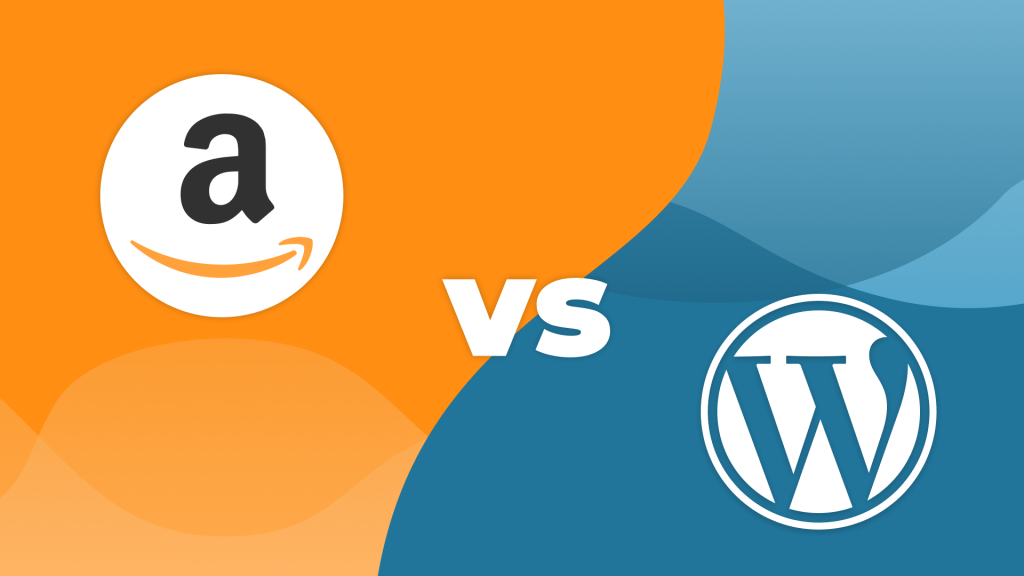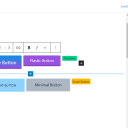
When you are starting your own eCommerce business, there are many choices to make, and each one can determine your potential for success. One of the very first choices is the selection of the platform you wish to sell on. There are countless options out there, but they can be sorted into two categories. You can either do everything on your own, or you can join an existing platform.
If you choose to sell on an existing platform, Amazon is a very strong contender. If you are keen on building everything yourself from the ground up, you can build your own website using WordPress.
We are going to examine the pros and cons of doing things either way.
WordPress Pros
Customizability – With WordPress, everything can be exactly as you want it to be so that you can have the website of your dreams. You have the freedom to be as creative as you want and have an impact on every little detail. Shared below is the clean and highly authentic approach that the people at The House of Whiskey have chosen:

Brand identity – With your own WordPress website, you can tell the story of your brand. You can educate your customers without being worried about having enough space or adjusting your content to imposed limits. Consider working with a reputable branding agency in San Francisco to further enhance your brand’s identity and create a compelling narrative that resonates with your target audience.
Flexibility – Once you design your WordPress website, you are not necessarily done with it. You can always add new things, experiment with new pages, promote special offers and play around with different types of content.
Full control – Not only can you have your WordPress website look exactly as you want it to look, you also have full control of its function. You can decide how the shopping and ordering process works, which can greatly increase your potential for higher conversions. This creates an overall more pleasant shopping experience that makes customers return to your business.
WordPress Cons
Specialized skill set – In order to build a fully functioning online store from scratch, you require a lot of technical know how. If you are not well versed in the technical skills necessary, you will need to hire outside help. In that case, you will also need ongoing help in order to maintain the website and make any changes that are necessary along the way. It’s important to avoid your website going offline due to a technical difficulty.
Everything is your responsibility – Having full control is a double-edged sword. You can reap the benefits, but you also have all the responsibility that comes with it. You have to handle product storage, shipping, and returns, as well as communicate with customers.
Promotion – It takes a lot of effort and money to make your website and brand popular. It takes a lot of work to generate a steady amount of traffic that will keep your business profitable. You cannot avoid spending money on Google Ads, as well as advertising on social media. It’s also important to maintain your brand presence on those platforms as well.
Amazon Pros
You only need to worry about the important things – If you are using the FBA system, Amazon will handle all the heavy lifting for you. You won’t ever have to worry about things like storage, shipping, picking, and packing. Most of your responsibilities will be to focus on sales and promotion, and simply planning the amount of inventory you will send to Amazon to take care of.
No need to worry about traffic – Amazon is one of the most visited websites on Earth. There are millions of people shopping there every single day, spending millions of dollars. Amazon has done all the work when it comes to recognition. However, it’s up to you to position yourself on the platform and profit from it.
Easy to get educated – A lot of people are selling on Amazon, and 3rd party sellers are raking in serious profits on the platform. These are all people that have paved the way for others that come after them. Due to the fact that selling on Amazon has got so popular, there are countless resources available. Using resources such as courses, YouTube videos, or e-books you can learn everything you need to know and run your business completely on your own.
Plenty of useful tools – Related to the previous point, there are many types of software tools to support Amazon sellers. These tools can help them to access the information they need in order to make informed decisions, experiment with best practices, or make some aspect of the selling process easier. No matter which aspect of the Amazon business you require help with, you will find a useful tool to make it easier for you.
Amazon Cons
A lot of competition – Amazon is the first place people think of when it comes to online shopping, which is exactly why so many people are selling there. In order to fully take advantage of Amazon’s incredible amount of traffic, it’s important to work hard to position your product listings and rank up. It’s all about creating the best listing you can and making solid decisions using Amazons’ PPC system.
Strict rules – Amazon is driven by a focus on customer satisfaction, so they like to keep their sellers in check. You have to play by the rules if you wish to sell on their platform and make Amazon’s visitors happy. You will have limited listing space, and you will have guidelines that you have to follow, or Amazon will have no problem sanctioning you. Below, we can see an example of a listing for a whiskey decanter. We can see how restricted the presentation is in comparison to a fully customized website:
Amazon fees – Amazon will do all the heavy lifting for you, if you are willing to pay. You need to calculate Amazon fees into your margin and find a way to sell a product at a price that is still profitable for you. You can expect that about ⅓ of your selling price will go to Amazon for every sale you make, if you are using the FBA system.
In conclusion, there are obvious advantages and disadvantages to choosing either of the two routes. It’s all about what you are more comfortable with and how much responsibility you are willing to take on. It’s obvious that there are tradeoffs. However, you are not limited to just one of these options. You can start with one, and if your business launch goes well, you could always expand into the other option as well. Or, you could launch on both options at once! It’s all about doing what is profitable for you.
Good luck sellers!






